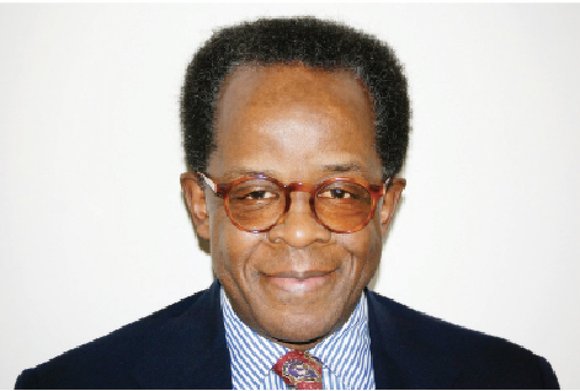White racism costs white people, too
7/24/2015, 1:52 p.m.
Lee A. Daniels
Although he forged a distinguished career as a 10-term Republican Congressman from the early 1950s to the early 1970s, and later as a judge on the Virginia Supreme Court, Richard H. Poff is but a minor footnote in American history.
In October 1971, Mr. Poff informed President Nixon that he did not wish to be nominated for a seat on the U.S. Supreme Court.
I wrote about why Mr. Poff turned down the nomination many Washington insiders expected to come his way when he died four years ago. His story illuminates a reality of American society that’s rarely discussed: The high cost of white racism to those on the white side of the color line.
I’ve been pondering that point since the murder of the Emanuel A.M.E. Church Nine drew an immediate outpouring of sympathy from many white people in the South and elsewhere and provoked widespread public outrage against the display of the Confederate flag on public property. That interracial call for change has followed the interracial protests of the last two years against the police killings of black and Hispanic Americans and suggests that, more and more, white people and other people of color understand the “cost” of white racism they must pay, too.
It’s that development, amid the conservative movement’s continual race-mongering, the GOP’s reflexive opposition to every Obama proposal, and especially the sordid anti-Latino demagoguery of GOP presidential candidate Donald Trump, that makes what Mr. Poff did in 1971 and what he said about it worth considering.
Like nearly every other Southern senator and representative during the 1950s and 1960s, Mr. Poff marched in lockstep with the white South’s campaign of “Massive Resistance” to the Civil Rights Movement. He wasn’t one of the demagogues who delighted in disparaging black Americans and denouncing civil rights legislation. He just went quietly along with those who did. In 1971, six years after the Voting Rights Act of 1965 had changed the South’s and the nation’s political calculus, the civil rights groups (who in 1969 and 1970 had engineered the defeat of two other Nixon Supreme Court nominees from the South) declared the cost to him of that past: Their unyielding opposition. Less than a fortnight later, Mr. Poff withdrew his name.
Three months earlier, Mr. Poff gave a remarkable interview to a local Virginia newspaper in which he discussed his civil rights record with extraordinary candor.
Among the things he said was this: “I can only say that segregation is wrong today, it was wrong yesterday. Segregation was never right. But it is one of the most lamentable frailties of mankind that when one’s wrong is most grievous, his self-justification is most passionate, perhaps in the pitiful hope that the fervor of his self-defense will somehow prove him right. But this doesn’t make it so. And he doesn’t fool himself.”
If I’m correct in reading his incisive and poignant words as regret for his moral cowardice on the civil rights issues of the day, then let’s consider a what-if:
What if Mr. Poff, by all accounts an honorable, thoughtful man, had resisted the demagogues of the day in the 1950s and 1960s and had been joined by some of the other Congressional Southerners? Would that have made a difference in that era’s fight for democracy in the South and across the country? Would America have seen then a visible cohort of white Southerners standing up against bigotry and for tolerance similar to what has occurred in the last six weeks in some areas of the South?
A final question: Is America still paying the cost of the inaction of too many white people like Mr. Poff?
Lee A. Daniels is a journalist based in New York City.







